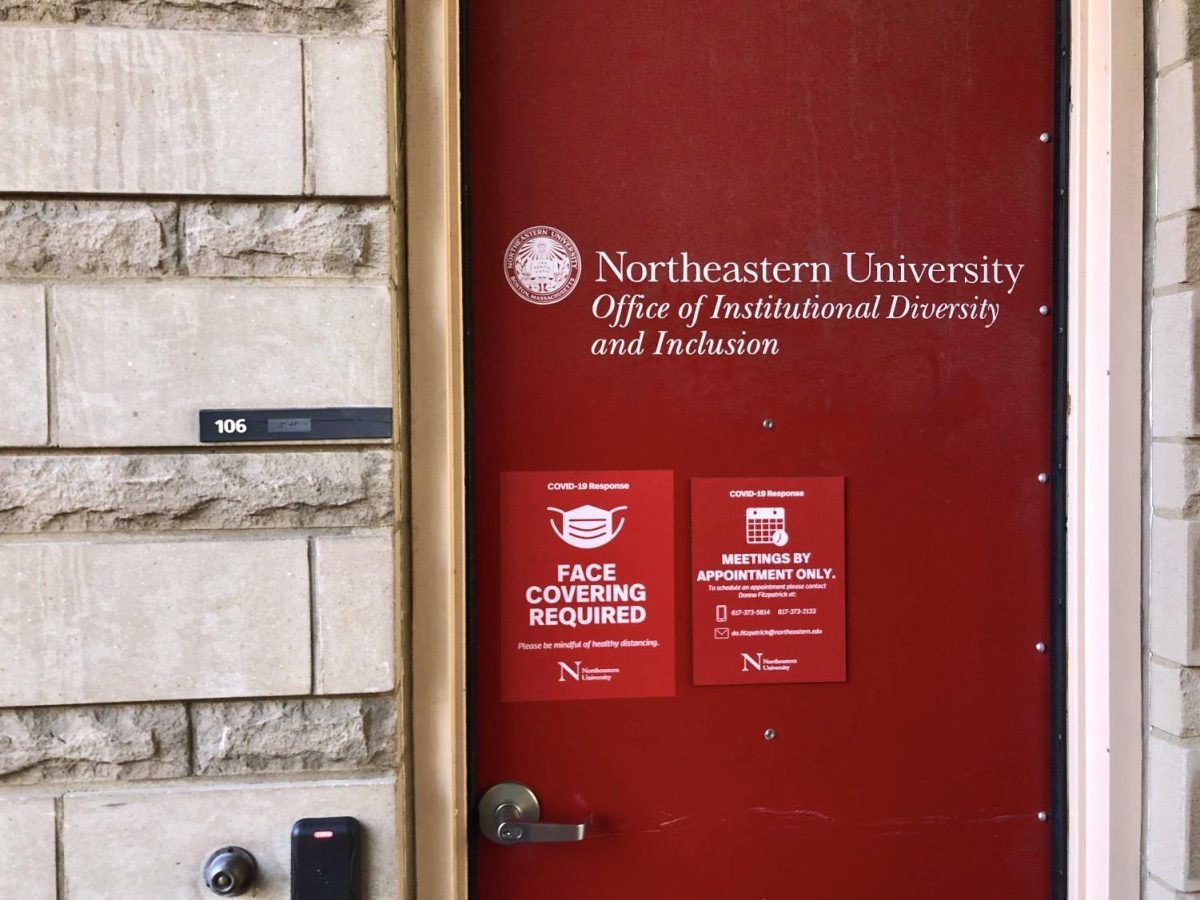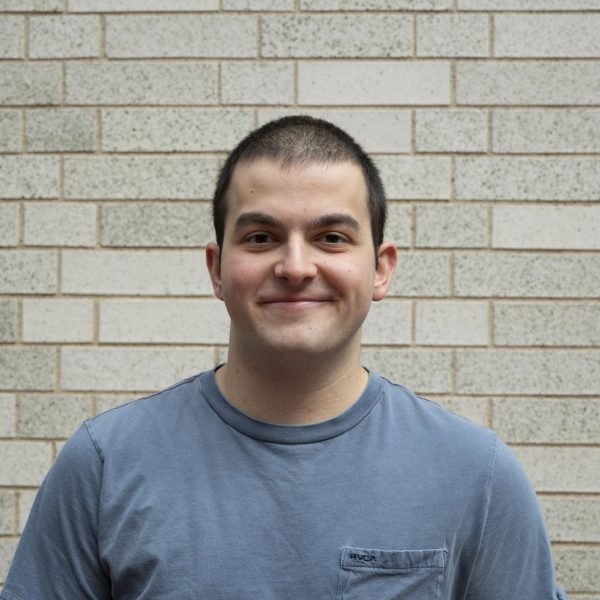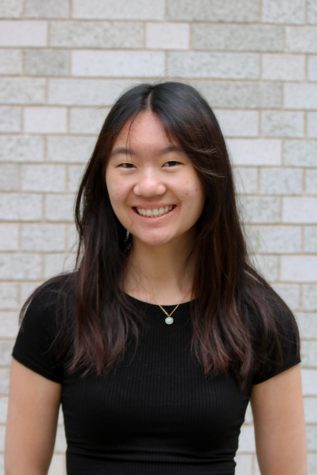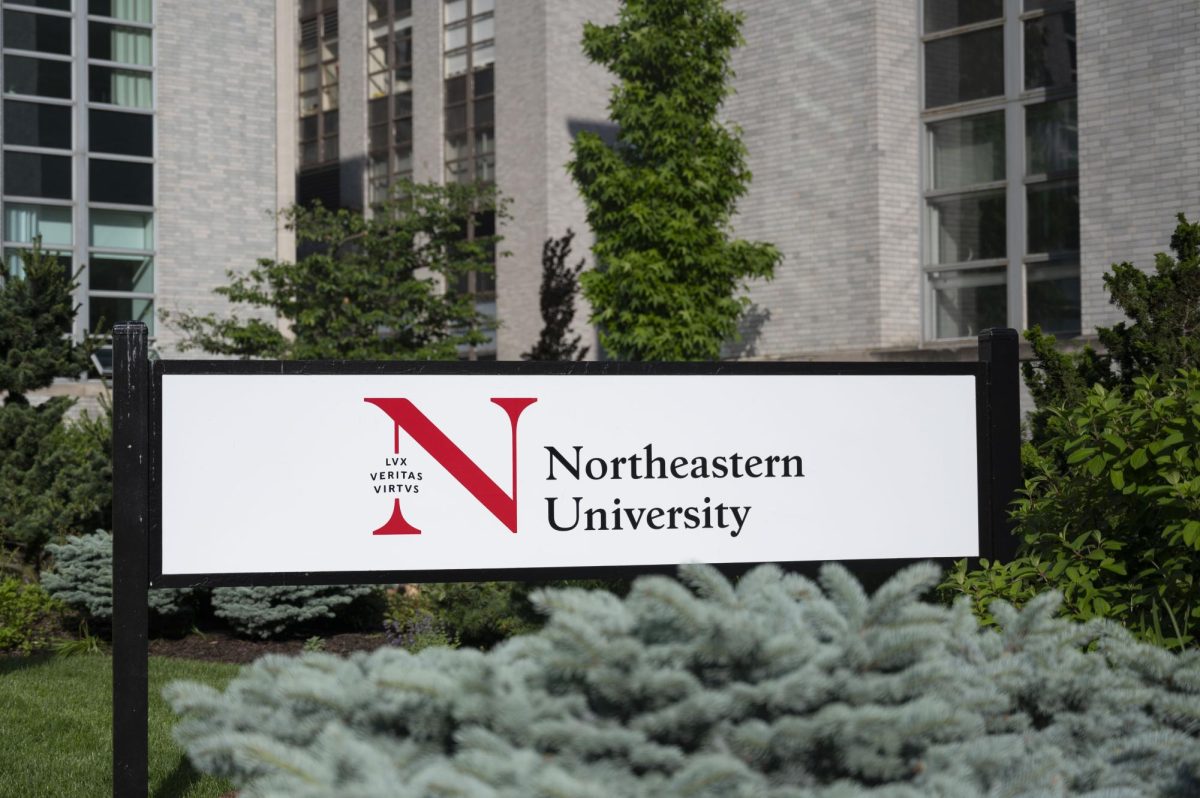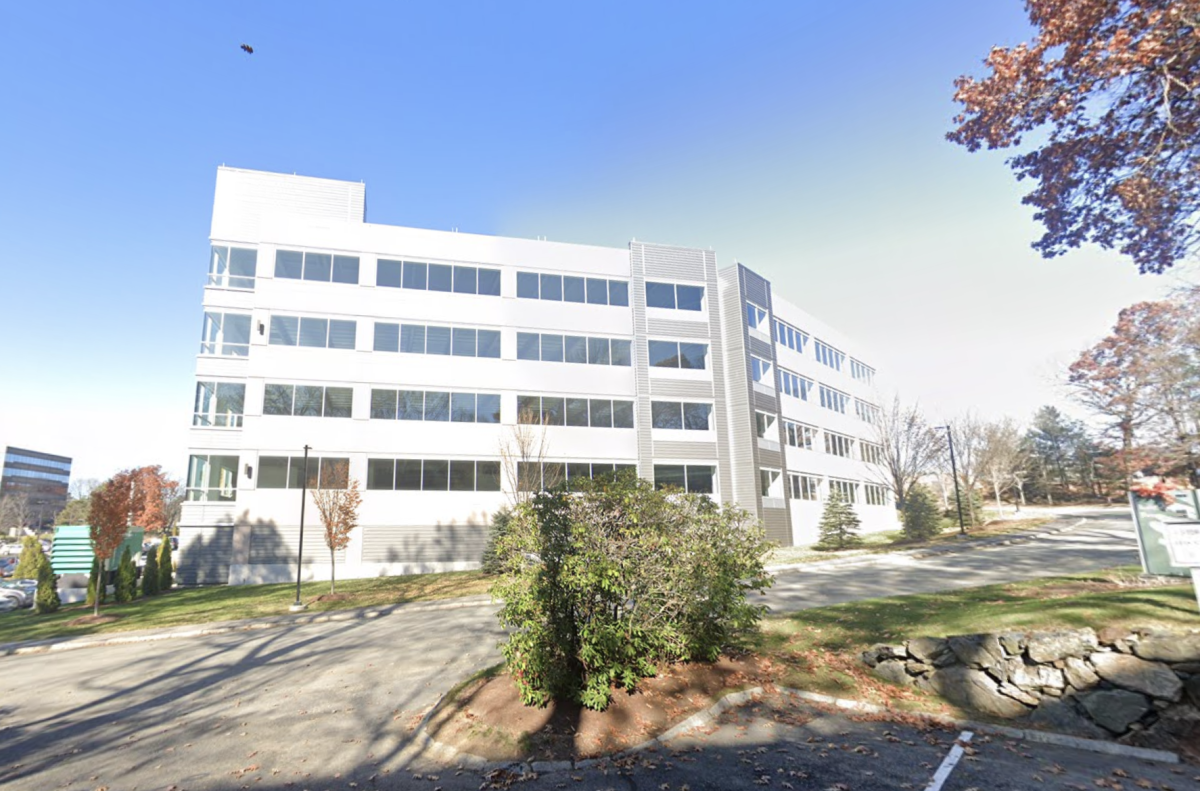Provost and Senior Vice President for Academic Affairs David Madigan announced to Northeastern’s Faculty Senate Dec. 6 that there were several “rule violations” at a Dec. 1 sit-in organized by Huskies for a Free Palestine, signaling that protestors’ disruption of university business will result in an investigation. At the biweekly meeting, members of the senate also expressed concerns that students were misusing wellness days and heard an update from the university’s chief inclusion officer regarding an effort to pioneer the incorporation of “belonging” into diversity, equity and inclusion initiatives at universities.
Ted Landsmark, chair of the senate leadership committee, elected senator from the College of Social Sciences and Humanities and distinguished professor of public policy and urban affairs, announced a number of search committees that have been formed for department chairs in biology, mechanical and industrial engineering, and electrical and computer engineering. In addition, the university is searching for a permanent dean of Mills College.
The senate opened with a brief update from Madigan, who opened the floor for questions and concerns from senators.
Eric Folmar, elected senator for the Bouvé College of Health Sciences and associate clinical professor of physical therapy, asked about the Dec. 1 Huskies for a Free Palestine sit-in, which occupied the indoor quad of Curry Student Center for eight hours. Folmar asked about the disruption it caused to an event put on by the physical therapy department in the same building.
Madigan, adding that he was “very aware” of concerns surrounding the sit-in, emphasized that Huskies for a Free Palestine is unapproved as an official student group, making it more challenging for the university to regulate events put on by the organization.
“I will say our approach to these things is that speech is protected,” Madigan said. “Hate speech is not [protected], threatening speech is not [protected]. Nor is it ok to interrupt university business. In that particular case, indeed some university business of the type you described … was disrupted and we have a student code of conduct and a whole process for enforcing the student code of conduct that will be applied in this case. There were some rule violations and they will be investigated and pursued in the usual manner that these things are handled.”
Days after the meeting, the university announced that several students involved in the sit-in would face disciplinary action.
Mark Sivak, elected senator for the College of Arts, Media and Design and associate teaching professor of both engineering and design, raised concerns faculty members have had surrounding wellness days.
“Something that I’ve heard … from faculty is that there seems to be an uptick … of wellness days in weeks where there’s already a holiday,” Sivak said. “I was just wondering if … a consideration would be that wellness days aren’t allowed when it’s already a short week.”
Madigan, unable to give exact information about the state of the program moving forward, asked Devyani Anand, a second-year behavioral neuroscience major and the faculty senate representative for the Student Government Association, or SGA, to answer. Anand is working with Madeleine Estabrook, vice chancellor for student life, on modifying the program in response to its successes and challenges.
“The issue is more logistics. The system … for the wellness days can’t pick up on stuff like that,” Anand said. “We’re not allowed to take wellness days when we have an academic lab, but if a student applies to take a wellness day during a lab day the system isn’t smart enough to pick up on it. A lot of these questions we’re discussing with the coding team … but yes, all of these concerns are things we’re already talking about.”
Students who requested wellness days this past semester have been asked by SGA and Estabrook’s office to fill out a survey to collect feedback on the program. This survey, along with feedback from faculty, will be used to modify the program in the future.
Feedback from faculty and students was also a critical part of the next segment of the meeting delivered by Karl Reid, senior vice provost and chief inclusion officer, who gave an update from the Office of Diversity, Equity, and Inclusion, or ODEI.
“We want to be a welcoming and inclusive community that invites diverse viewpoints,” Reid said. “We aspire to be a community that invites all identities, backgrounds and experiences to thrive and have a strong sense of belonging, and for a reason: to achieve academic, research and professional success.”
Reid spoke at length about both the 2021 Diversity and Equity Climate Survey Report and the 2023 edition, titled “Many Voices, One Northeastern.” The 2023 survey, set to come out early next year, assessed the extent to which students, faculty and staff feel respected and included at Northeastern. The preliminary data showed six demographic groups of students that experienced “belonging uncertainty.”
“We began to have meetings with those six groups and learned that the sense of belonging and lack of belonging in [each] group should be a priority in this work,” he said.
In addition, Reid noted that the Israel-Hamas war has had a noticeable effect on the campus climate.
“Especially now as the climate of the campus is really being challenged [by what’s] happening in the Middle East, we want to make sure that everyone feels seen, valued and heard,” Reid said. “We want to actually operationalize this whole notion of ‘belonging’ so that people feel a personal ownership.”
One of the largest initiatives that Reid’s office oversaw in the past several years was the cultural literacy and antiracism training mandated for all faculty, staff and students in late 2021. This training has continued and will be introduced as an integral part of the orientation experience for new community members.
“Now, every new faculty, staff and student that comes to Northeastern watches that video and we track the compliance rates as to whether or not these groups are participating,” Reid said. “We’re about to roll out … customized modules to be embedded in the first-year programs.”
The goal, Reid said, is not just to make a positive impact on Northeastern’s campus, but to be a global leader in diversity, equity, inclusion and belonging, components of a DEI strategy known as DEIB.
“We’re doing a lot of this to support our university community, but we’re also doing this to be a model for higher education at large,” Reid said. “If we’re really successful at moving the needle … we can be a model for global universities … around the world.”
Professor Landsmark asked how Northeastern is managing community engagement as it continues its record expansion into highly diverse communities around the world.
“One of the approaches to this work is to elevate and to amplify the work that others are doing as well,” Reid said. “[We don’t want to] come in as a savior but [come] in as a partner to help identify what are the gaps that need to be closed.”
Specifically in Boston, Reid is looking at how Northeastern can help close the wealth gap, which has historically been greater in the Boston area.
“I’m having conversations with some of my colleagues here in the Boston area looking at wealth gaps … particularly in Roxbury and Dorchester,” Reid said. “We could really do something transformative.”
Brook Baker, elected senator for the law school and professor of disability law and negotiation, brought up a concern with regard to what he called “critical belonging.”
“One of the things that I think affects disaffected groups significantly is they don’t feel like they can criticize what they know about Northeastern and have that criticism be welcome,” Baker said. “If an institution responds defensively, then of course that doesn’t foster a sense of belonging, and we want our students to have critical perspectives about all the institutions they’re involved in.”
Reid noted that he’d follow up separately with Professor Baker to discuss his concerns, specifically about creating feelings of inclusivity and belonging for students with disabilities as another layer to an inclusive campus.
“Experience belonging” is what Northeastern is calling the shared ownership of creating a supportive climate and inclusive community. The name comes from Northeastern’s experiential learning opportunities and looks at infusing DEIB concepts into all aspects of university life.
“Our [focus of this work] has got to be belonging,” Reid said. “While everyone in the country is having arguments about the headwinds about diversity, equity and inclusion, one of the things we can all agree [on], is that belonging is an essential human need.”



